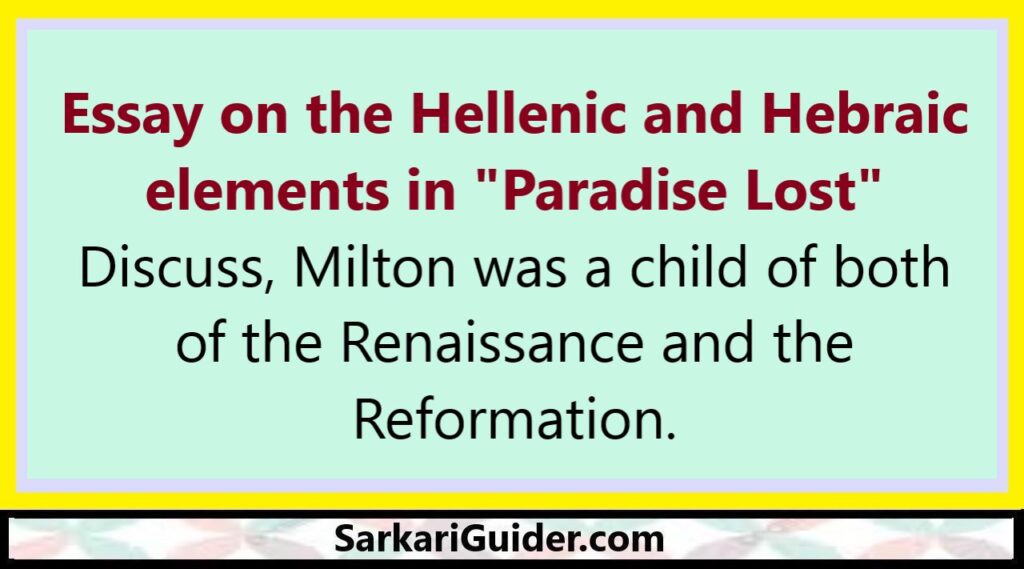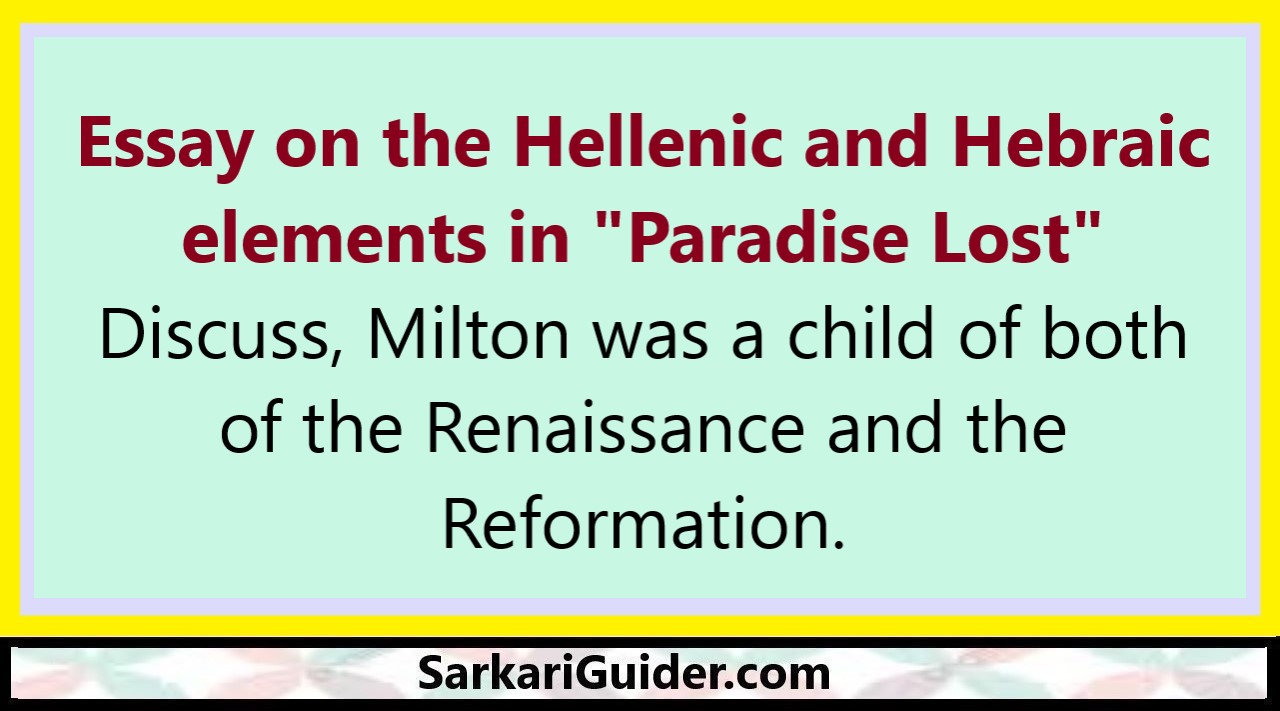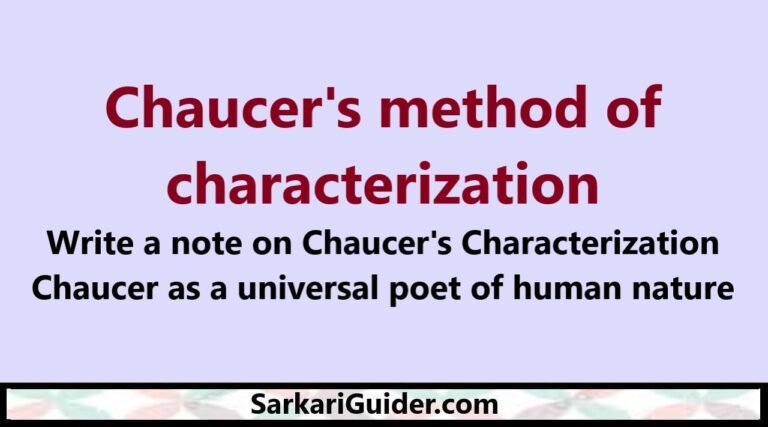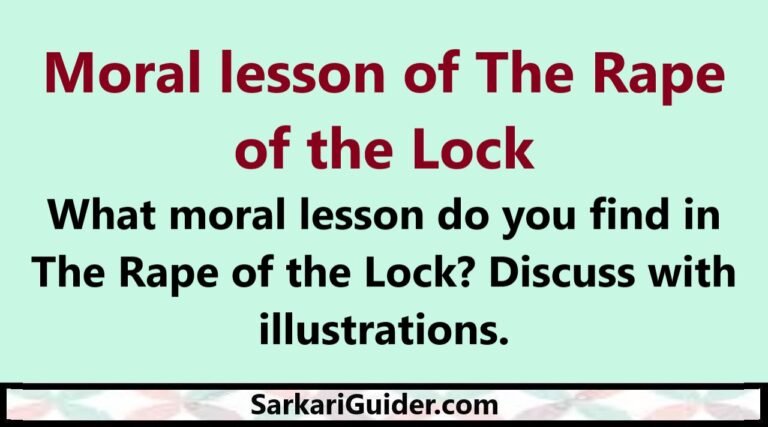Essay on the Hellenic and Hebraic elements in “Paradise Lost” | Discuss, Milton was a child of both of the Renaissance and the Reformation.

Essay on the Hellenic and Hebraic elements in “Paradise Lost” | Discuss, Milton was a child of both of the Renaissance and the Reformation.
Essay on the Hellenic and Hebraic elements in “Paradise Lost”
Introduction –
The word “Hellenic denotes the Greek literature where as the word “Hebraic” denotes the Biblical elements.
The Rebirth of the Greek learning is known as Renaissance in the history of English literature while the Reformation deals with the Reformation of the values of puritanic or Biblical elements in English literature.
In Milton we find a good fusion of the both elements. He was a child of Renaissance as well as of reformation. There we find a perfect harmony of both type of elements in his most famous epic “Paradise Lost.”
Milton had experienced within his own heart, the conflict of opposing forces-Paganism and Christianity and religion. No other English poet was at once so profoundly religious and so much an artist.
The Puritanic element or the Hebraic elements we find in his selection of themes. As his both great epics aimed at the theme of “Fall of man and his redemption through Christ.” So in Spirit he in Hebraic. But the forms of literature he adopts are Hellenic. Both of his epics are on the Greek pattern of epics. He applied Homeric similes and other classical rules including Grand Style “Samson Agonistes is, in form and structure the Greek classical tragedy. His “Lycidas” is a pastoral elegy on the pattern of Greek pastoral elegies.
In Paradise Lost we find a beautiful fusion of these elements. Here, the Hellenic elements are in its construction in the division of the twelve books the aiding of the supernatural machinery, the description of the war between God and Satan, the use of Homeric similes and grand style, the invocation of the Muse, the names of the places, persons, and events.
While here the character of Satan is in the light of the Renaissance. He has ego, pride, self-respect, strong will, like a renaissance character.
In spirit and purpose in the defeat of evil, and the choice of the them, incident and characters Milton is Biblical. His “Paradise Lost” is fully Biblical, Hebraic, or Puritanic’. His aim of writing the epic is to assert eternal providence and to “Justify the ways of God to men.”
Conclusion-
Indeed, the good fusion of Hellenism and Hebraism has made the poem a distinct epic. He uses both classical and Christian imagery. Here the subject of the poem is religious and its treatment is classical. The spirit is Hebraic and the body is Hellenic. The form is Greek and the purpose is Christian. In the words of Dr. K.R. Srinivas lyenger –
“The Supreme of a write in whose work both Christian and classical influence fuse together to make a poetic Triveni is Milton.”
English – Important links
- The Prologue as a Picture of Contemporary Society | Discuss the Prologue as a mirror to 14th century | Discuss The Prologue is a picture of contemporary society in Chaucer’s time.
- Chaucer’s Humanism | Discuss Chaucer’s Humanism
Disclaimer: sarkariguider.com is created only for the purpose of education and knowledge. sarkariguider.com does not own these book/materials, neither created nor scanned. We provide the links which is already available on the internet. For any quarries, Disclaimer are requested to kindly contact us, we assured you we will do our best. We do not support piracy, this copy was provided for students who are financially troubled but deserving to learn. If in any way it violates the law or there is a problem, please mail us- [email protected]







